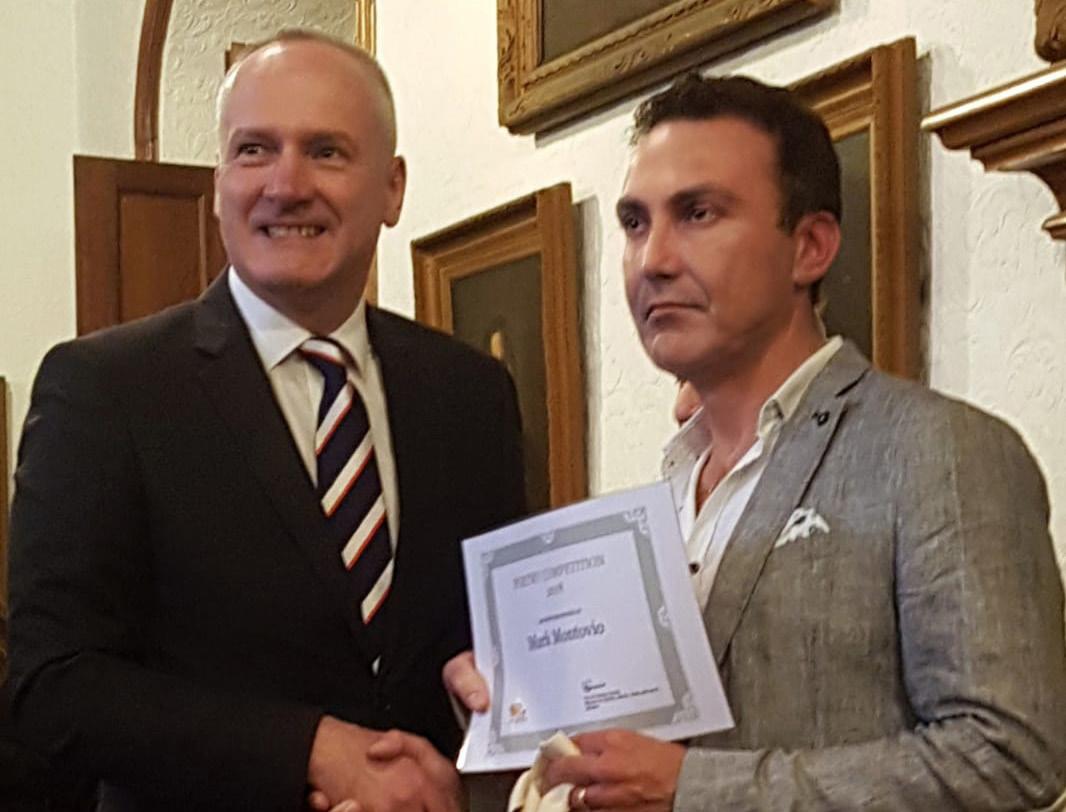
5 minute read
Dyslexia in Education: The Impact on Learning by Mark Montovio
DYSLEXIA IN EDUCATION life Self-esteem is so inextricably linked to happiness, fulfilment, growth and learning, that to underestimate this is to completely undervalue the learner as a whole. If we fail to understand how crucial meeting an individual’s basic emotional need is, no matter how able they are, we fail the student at a holistic level and this will impact on learning.
BY MARK MONTOVIO
Throughout my teaching career, the following quote has remained at the forefront of my educational philosophy: ‘Mother, let’s play darts. I throw the darts … and you say wonderful!’
I was fortunate; one of the lucky ones who never had to ask my mother to say how wonderful I was in her eyes. Dreadful at sports, slow at reading, timid, withdrawn in unfamiliar surroundings and generally wanting to remain in the background avoiding attention and the limelight. In the presence of my mother, I felt like a king on a golden throne and 40 years on, the way she made me feel about myself as a person is at the core of my way of being.
Dyslexic students are of course no different.
at the age of nineteen, during my first year at university, everything fell into perspective and on completion of my degree, when I began training to become a teacher, raising student’s selfesteem, I felt, was one of the most important targets to be met. This had to be the starting point because there would also be areas where students may not have the capacity to excel and acknowledging this safely was very important.
There are innumerable studies linking self-esteem to learning, and dyslexic students are of course no different. Specific teaching targeting their needs and abilities is clearly crucial but often without the sense that they can overcome many stumbling blocks progress can be slow and very painful and many learners become demotivated.
If during my schooling I learnt one thing that was crucial though, that was to accept the areas I would not excel in. I am a visual learner and take things in primarily when I see them and can visualise them. I am not good at learning things by rote and often forget sequences. My auditory skills are considerably weak and it was only when I was diagnosed, and I began to accept that I would always have difficulty remembering phone numbers, number plates, any series of verbal instructions and other meaningless sequences, that I made progress in many
other areas by devoting time to reinforcing my skills to compensate for my weaknesses. This of course took determination and courage which could only be driven by the sense of achievement and purpose I had developed as a young learner.
Confidence was the key, because despite the strong emphasis on literacy and numeracy, during the schooling process and a great deal of failure which could easily have devastated my self-concept and self-esteem, I remained focused remembering that as a person I was valued and loved - and many thought I was great!
So, there is a place for praise, credits, certificates, gold stars and any other form of rewarding the effort it takes a child with learning difficulties to complete a piece of written work in class, however small the steps are. But equally as important, it is crucial that early on we understand the areas where a struggle may be inevitable, and consider whether in effect battling on is helpful. It has always been my experience that the sooner we learn that some things are out of our reach, the readier we become to give all our energy to areas where we can achieve and our self-esteem does not suffer the devastating blow that could lead to total disengagement.
Mark Montovio with previous Governor of Gibraltar, Lieutenant General Ed Davis
Mark Montovio


Children listen to what people tell them. If they are constantly subjected to negative experiences, these become an integral part of them. Individuals who are resilient say that the most important thing that helped them through adversity was that there was at least one adult who believed in them and stood by them. And the essential ingredient here must ring true to the child even if it just is, ‘Mark you are so good with animals.’ Adults with poor self-esteem often have difficulty thinking of something they excel at or a person who believed in them.
Thomas Edison, for example, who was dyslexic and was rejected by his teacher, was taught at home by his mother. Probably the greatest benefit that he received from his home schooling was the influence that his mother had upon him, over and above the academic material she provided. Edison later said of her that ‘… she instilled in me the love and purpose of learning.’ I know that if this remains the focus of our work with children, that if we are able to fill a child with the ‘love and purpose of learning’, we are already meeting a huge part of what they need and the benefits will be clearly seen.
Mark Montovio has a Degree in Fine Arts, a PGCE in Art, Dance and Special Needs, a Diploma in Specific Learning Difficulties and a Diploma in Counselling. This article has been provided to the Gibraltar Dyslexia Support Group (GDSG) for publication to raise awareness of Dyslexia. However, the views and statements made in this article are not necessarily held by the GDSG.
ABOUT THE DYSLEXIA SUPPORT GROUP:
Group (GDSG) is a local charity which has been helping dyslexics since the early 90s. Over that time the GDSG has worked alongside many different Education Ministers and Governments. Much has been achieved but the years have passed very quickly with the improvements taking longer than expected.
The GDSG continues to promote best practices in the schools for teachers to educate dyslexic children in the way they learn best. We try to further the understanding and knowledge of dyslexia in the general public and businesses.
As a Support Group, we are here to help, support and give advice with events which assist parents, children and teacher and just a call or email away.
For further details please contact the GDSG on: +350 5400 7924, info@dyslexia.gi, or at dyslexia.gi.










